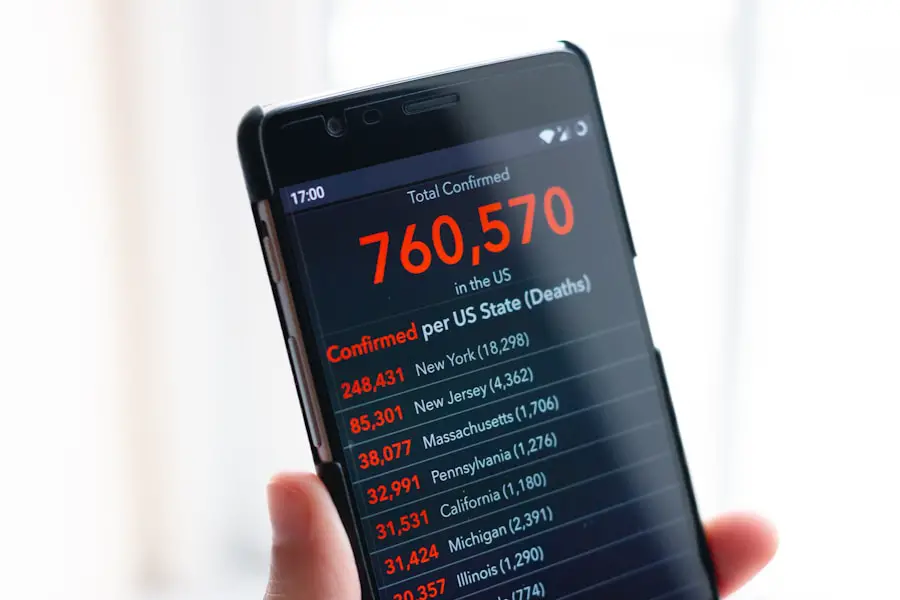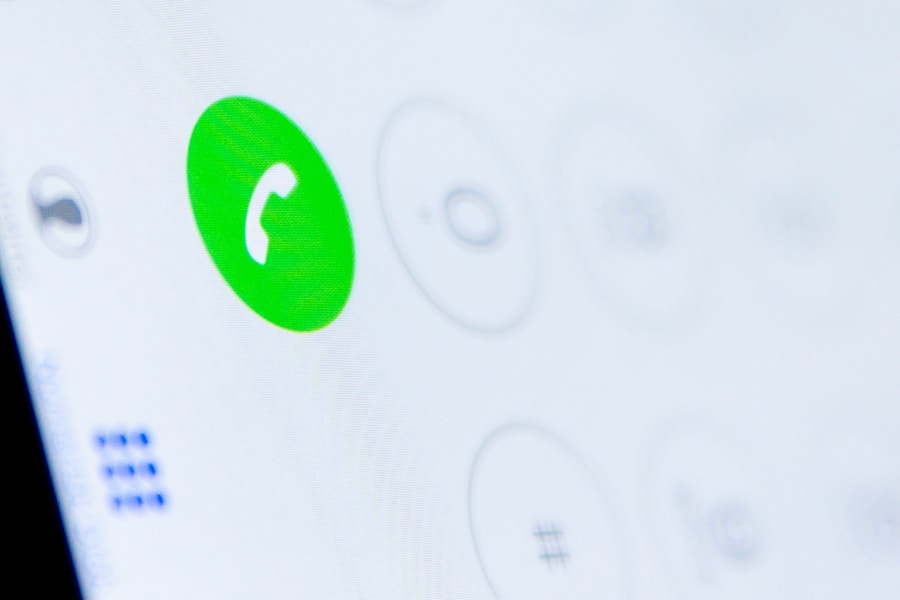Phone tracking is a technology that allows individuals or organizations to determine the location of a mobile device in real-time or to access historical location data. This capability is made possible through various technologies, including GPS (Global Positioning System), Wi-Fi triangulation, and cellular network data. GPS is the most widely recognized method, utilizing a network of satellites that communicate with the device to pinpoint its location with remarkable accuracy.
In urban environments, where tall buildings can obstruct satellite signals, Wi-Fi triangulation becomes particularly useful, as it leverages nearby Wi-Fi networks to enhance location accuracy. The applications of phone tracking are diverse and can range from personal safety to business logistics. For instance, parents may use tracking services to monitor their children’s whereabouts for safety reasons, while businesses may employ tracking solutions to optimize fleet management and ensure timely deliveries.
Additionally, law enforcement agencies utilize phone tracking as a tool for investigations, allowing them to gather crucial evidence in criminal cases. Understanding the underlying technologies and their applications is essential for anyone considering the use of phone tracking services.
Key Takeaways
- Phone tracking allows you to locate a mobile device using GPS, Wi-Fi, or cellular network data.
- When choosing a phone tracking service, consider factors such as accuracy, reliability, and privacy features.
- To track a phone, you typically need the phone number and sometimes the consent of the phone’s owner.
- Access tracking information through a web-based interface or mobile app provided by the tracking service.
- Phone tracking has limitations such as accuracy issues in rural areas and the inability to track a phone that is turned off or in airplane mode.
- Ensure legal and ethical use of phone tracking by obtaining consent and using the service for legitimate purposes only.
Choosing the Right Phone Tracking Service
Functionality and Features
The market is flooded with various options, each offering unique functionalities tailored to different needs. Some services focus on real-time location tracking, while others may provide geofencing capabilities that alert users when a device enters or exits a designated area. Additionally, some applications offer historical location data, which can be invaluable for analyzing patterns over time.
Compatibility
Compatibility is another critical aspect to consider when choosing a phone tracking service. Not all services are designed to work seamlessly across different operating systems; therefore, it is essential to verify that the chosen service is compatible with the target device’s operating system, whether it be iOS or Android.
User Experience and Cost
User-friendliness also plays a significant role in the selection process. A service with an intuitive interface can make it easier for users to navigate and access the information they need without extensive technical knowledge. Finally, pricing structures vary widely among services, with some offering subscription models while others may charge a one-time fee. Evaluating these factors will help users make an informed decision that aligns with their specific requirements.
Providing the Phone Number for Tracking

Once a suitable phone tracking service has been selected, the next step typically involves providing the phone number associated with the device to be tracked. This process can vary depending on the service being used. Some applications may require direct access to the device itself for installation and configuration, while others may allow users to track a device simply by entering its phone number into a web-based platform.
This distinction is crucial because it affects how easily and quickly tracking can be initiated. In cases where direct access to the device is necessary, users must ensure they have permission from the device owner before proceeding. Unauthorized tracking can lead to legal repercussions and ethical dilemmas.
Conversely, services that allow tracking via phone number often come with their own set of challenges, such as ensuring that the number entered is accurate and that the service provider has the necessary permissions to access location data. Understanding these nuances is vital for effective and responsible use of phone tracking technology.
Accessing the Tracking Information
| Tracking Information | Number of Users | Frequency |
|---|---|---|
| Website Visits | 5,000 | Daily |
| App Downloads | 1,000 | Weekly |
| Email Opens | 3,500 | Monthly |
After successfully providing the necessary information for tracking, users can access real-time location data through the chosen service’s platform. Most modern phone tracking applications offer user-friendly dashboards that display the device’s current location on a map, along with additional features such as location history and alerts for specific events. For instance, some services may send notifications when a tracked device enters or leaves a predefined area, which can be particularly useful for parents monitoring their children’s movements.
The accessibility of this information can vary based on the service’s design and functionality. Some applications provide mobile versions that allow users to track devices on-the-go via smartphones or tablets, while others may be limited to desktop access. Furthermore, many services offer additional features such as speed monitoring and route history, which can provide deeper insights into a device’s movements over time.
Understanding how to navigate these features effectively can enhance the overall experience and utility of phone tracking services.
Understanding the Limitations of Phone Tracking
While phone tracking technology has advanced significantly in recent years, it is essential to recognize its limitations. One major limitation is accuracy; while GPS can provide precise location data in open areas, its effectiveness diminishes in densely populated urban environments where buildings obstruct satellite signals. In such cases, reliance on Wi-Fi triangulation or cellular data may lead to less accurate results.
Additionally, factors such as poor network connectivity or battery life can impact the reliability of tracking services. Another limitation pertains to privacy concerns and legal restrictions surrounding phone tracking. Many jurisdictions have strict laws governing the use of tracking technology, particularly when it comes to monitoring individuals without their consent.
Users must be aware of these regulations to avoid potential legal issues. Furthermore, some devices may have built-in privacy settings that restrict location sharing or disable tracking features altogether. Understanding these limitations is crucial for users who wish to utilize phone tracking responsibly and effectively.
Ensuring Legal and Ethical Use of Phone Tracking

The Ethical Use of Phone Tracking Technology
Phone tracking technology has significant ethical implications, and its responsible use relies on obtaining consent from the individuals being tracked. Transparency is key, especially when monitoring minors or employees, as it fosters trust and ensures compliance with legal standards.
### Ensuring Transparency and Trust
In many cases, parents should communicate openly with their children about why they are using tracking services and how it contributes to their safety. Similarly, employers should inform employees about any monitoring practices in place and clarify how this data will be used.
### Navigating Legal Considerations
Legal considerations play a significant role in determining how phone tracking can be utilized. Different countries have varying laws regarding privacy and surveillance; therefore, users must familiarize themselves with local regulations before implementing any tracking solutions. In some regions, unauthorized tracking can lead to severe penalties, including fines or imprisonment. By prioritizing ethical considerations and adhering to legal guidelines, individuals and organizations can leverage phone tracking technology in a manner that respects privacy rights while still achieving their objectives.
### Responsible Use and Staying Informed
In conclusion, phone tracking technology offers valuable tools for various applications ranging from personal safety to business efficiency. However, understanding its fundamentals, selecting appropriate services, providing necessary information responsibly, accessing data effectively, recognizing limitations, and ensuring ethical use are all critical components of navigating this complex landscape. As technology continues to evolve, staying informed about best practices will empower users to harness the benefits of phone tracking while respecting privacy and legal boundaries.
If you are looking for a reliable way to track a phone by phone number, you may want to check out the article on AppsSoftwares.com. This website offers various tools and resources for tracking phones and provides detailed information on how to do so effectively. For more information on privacy policies and how to contact the website for further assistance, you can visit their privacy policy and contact pages.
FAQs
What is phone tracking by phone number?
Phone tracking by phone number is the process of locating a mobile device using its unique phone number. This can be done through various methods such as GPS tracking, cell tower triangulation, and mobile network location services.
Is it legal to track a phone by phone number?
The legality of tracking a phone by phone number varies by location and the circumstances surrounding the tracking. In many cases, tracking a phone with the owner’s consent is legal, but it may be illegal to track a phone without the owner’s knowledge or consent.
What are the methods used to track a phone by phone number?
There are several methods used to track a phone by phone number, including GPS tracking, cell tower triangulation, and mobile network location services. Each method has its own advantages and limitations.
Can I track a phone by phone number for free?
There are some free methods available for tracking a phone by phone number, such as using online phone tracking websites or apps. However, these free methods may have limitations in terms of accuracy and reliability.
What are the reasons for tracking a phone by phone number?
There are various reasons for tracking a phone by phone number, including locating a lost or stolen phone, monitoring the whereabouts of a family member or employee, and ensuring the safety and security of a mobile device.
